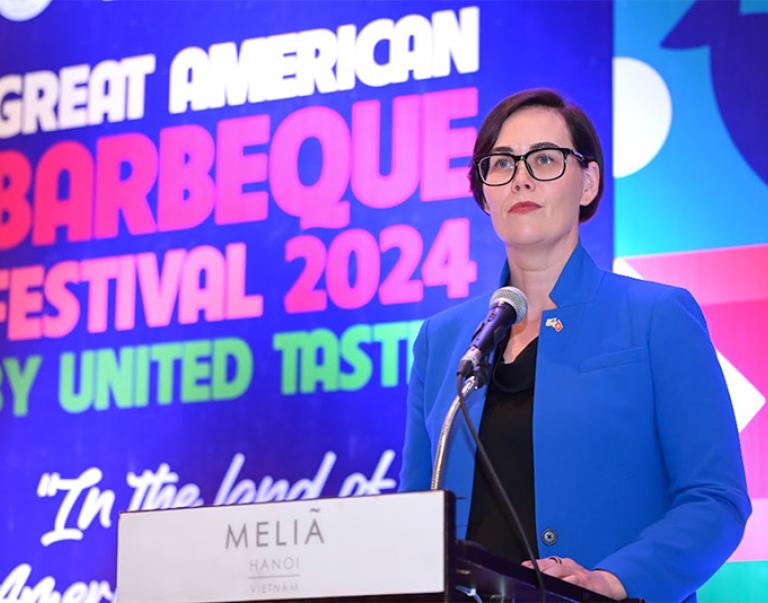Last week, I got the chance to address students at Delaware State University’s first-ever Graduate Research Symposium. Delaware State is part of the land-grant university system that is called an “1890 institution,” because it was founded through the second Morrill Act, passed in that year to extend the education system of the land-grants to African-Americans.
I’m a former dean of an agriculture school (at Iowa State University), so talking to students is one of my favorite parts of my job as USDA’s Chief Scientist and Under Secretary of Research, Education and Economics. I had to agree with Provost Alton Thompson who said, in my introduction, “It’s a great day to be at Del State!”
It was also Annual Scholars Day, when the university brings the best of local high school science talent, who have received scholarships to go to Delaware State next year, to the campus to show them all the great research they’re doing. It’s vitally important that we get more young people into the education pipeline for science, so that we always have the scientists and researchers we need to keep agriculture the strong sector of our economy it is.
After my talk – and some very insightful questions from the student audience – I was given a tour of the beautiful Delaware State campus. I started at the university’s Claude E. Phillips herbarium, which is the only herbarium on the Delmarva peninsula and is the site for research support for the flora of Delaware. Dr. Arthur Tucker told me an interesting fact that reinforced the need to get kids interested in sciences. He said that people who go on to study plant sciences make their minds up to do so by the fifth grade.
After the Herbarium, I went on to meet with the team of Extension program leaders, who are doing amazing work for their community and state. From helping small farmers maximize their productivity, to researching new feedstocks like cassava for use in biofuels, to research on eliminating parasites in goats, to their flagship nutrition education program serving limited resource parents and caregivers, Delaware State Extension is there with relevant programs.
With Delaware’s coastline, it’s no surprise that aquaculture and fisheries research are also a significant part of their work. Agriculture is a major driver of the state’s economy, and Del State researchers are connecting land use to fisheries in ways that will keep both healthy. My last stop on the tour was to see a USDA Agricultural Research Service lab that hosts Del State grad student researchers. Their work is crucial to seafood safety, as they are the only USDA lab in the entire United States devoted entirely to reducing seafood contamination from the most common cause of food-borne illness: norovirus.
There are many reasons to be proud of what land-grant universities have done to transform America and open the doors of education to everyone. My day at Delaware State was another reminder of that legacy and of the amazing work these universities contribute to society. Because of their substantial impact on the lives of all Americans, USDA is proud to support the land-grant system it created almost 150 years ago.




